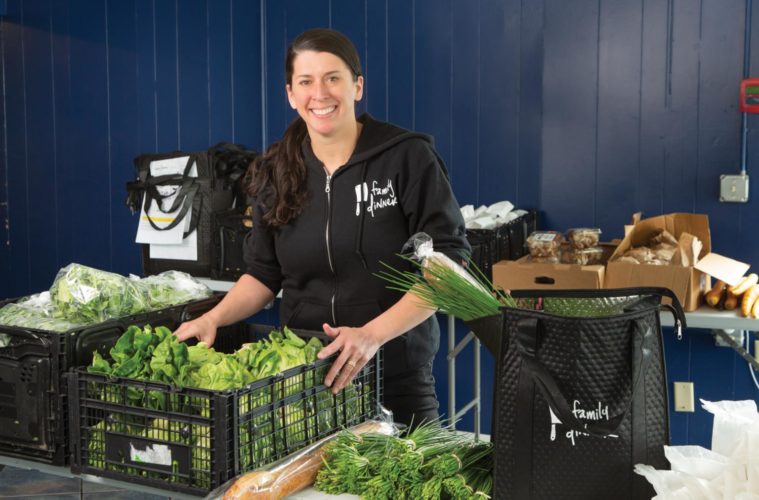If there’s a food industry unicorn, it’s this: a system for delivering fresh, local products to consumers with minimal food waste and packaging, all while supporting small producers, lessening the carbon footprint, providing a wide variety of foods year-round for complete meals, and making everything taste great to boot.
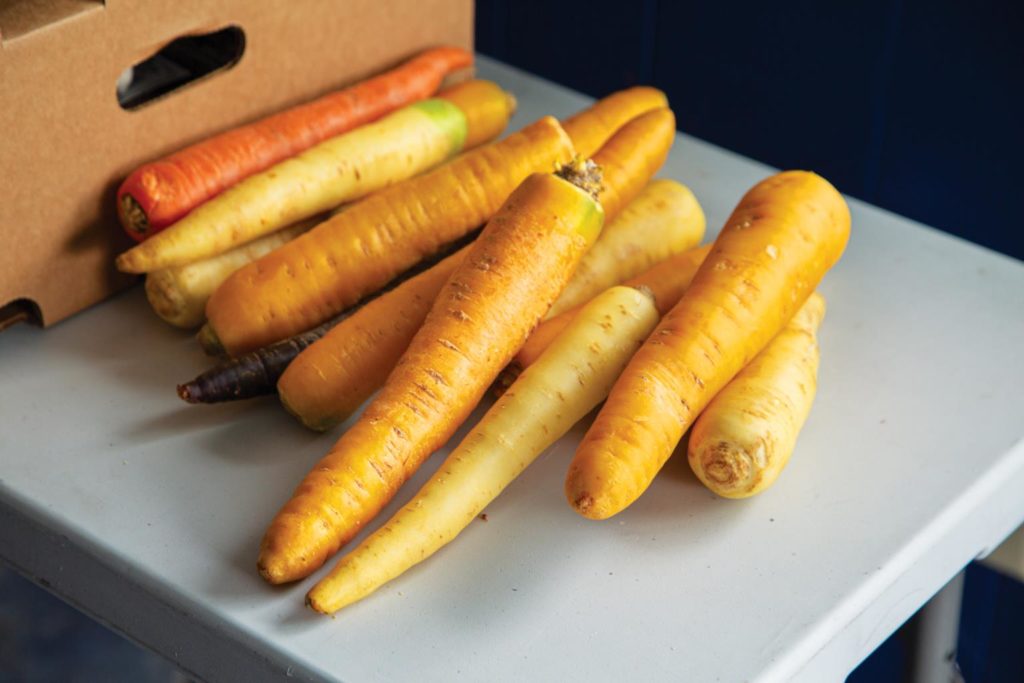
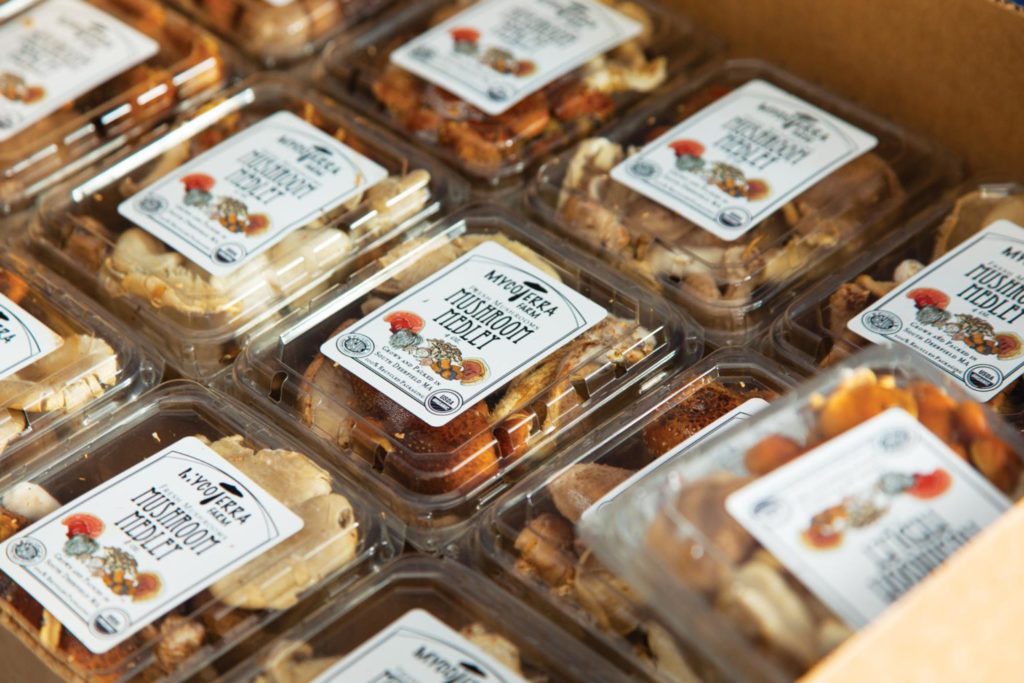
Somerville-based Family Dinner has taken us a big step closer to that ideal, thanks to a business model that marries the age-old tradition of knowing your farmer with cutting-edge data science garnered from years at MIT.
“Family Dinner is a farmer’s market delivery service, but it’s also a company that’s trying to use data to change the food supply chain, to change the way food gets to people’s tables,” says Topsfield native Erin Baumgartner, CEO and co-founder of Family Dinner. Baumgartner started the company with her husband, Tim Fu, after spending 11 years working at MIT, most recently as assistant director of the MIT Senseable City Lab.
Although Family Dinner shares some characteristics with community-supported agriculture and subscription-based meal kits, its real differentiator is the science. “Sticking a layer of data science on top of it makes it a little bit different,” Baumgartner says.
Family Dinner uses a subscription-based e-commerce platform where orders process weekly. Because customers can choose to opt out, rather than opt in, each week, Family Dinner can order supply from the farmers that meets the exact weekly demand, which in turn helps eliminate waste.
They also use predictive analytics to look into the future with farmers and strategize about how they should plan their crops based on how many subscribers Family Dinner predicts it will have. “It’s just a nerdy, data-driven approach to farm shares,” Baumgartner says.

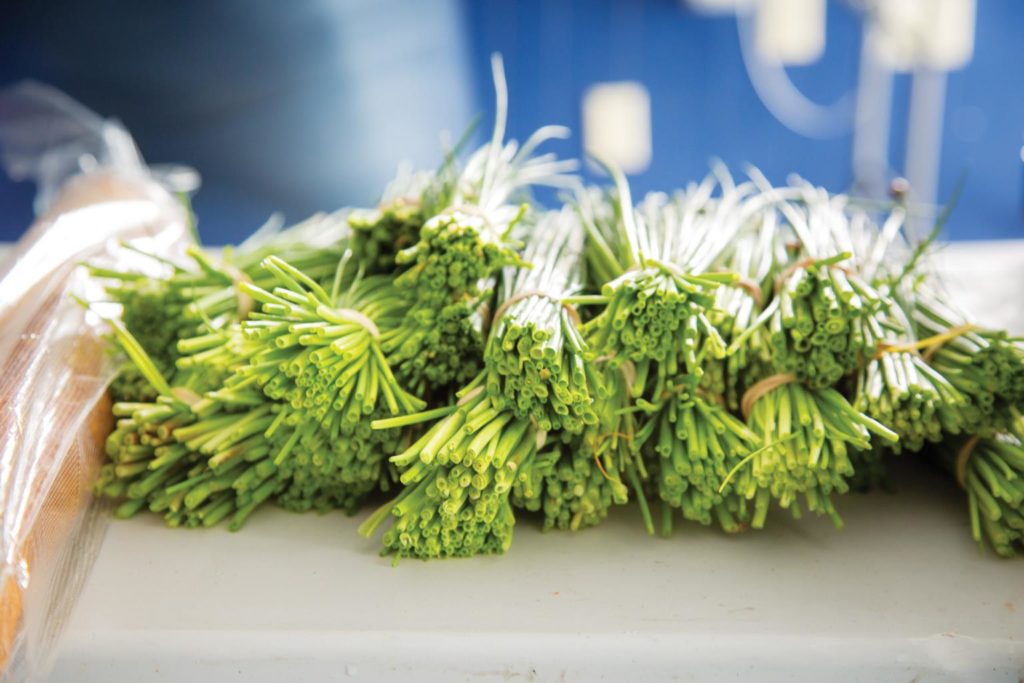
Using this approach reduces food waste—the Food and Agriculture Organization of the United Nations says that roughly one-third of the food produced in the world for human consumption every year is lost or wasted—and also guarantees farmers that Family Dinner will buy all the products it has ordered. “It allows them to do what they do best…focus on growing beautiful food,” Baumgartner says. “We’re able to tell them with confidence: Please plant this, I will buy it from you, nothing will go to waste.”
Unlike a traditional CSA, which typically provides customers with shares from a single farm, Family Dinner draws from a wide variety of local producers to provide customers with meats, eggs, veggies, fruits, special treats like baked goods, and other products. Subscribers also get an email each week describing what’s in their share and how to store and use it. “We’re trying to get people to have fun in their kitchen, to get to know their local farmers, and to waste as little food as possible,” Baumgartner says.
A week’s share might include haddock and scallops from Red’s Best in Boston; shiitake mushrooms from Mycoterra Farm in South Deerfield; microgreens from Heron Pond Farm in South Hampton, New Hampshire; tortillas from Mi Tierra Tortillas in Hadley; and dessert bars from Forge Baking Company in Somerville. Because of that wide net, the offerings are more interesting and varied year-round and don’t include the typical root-veggie-heavy winter CSA share.
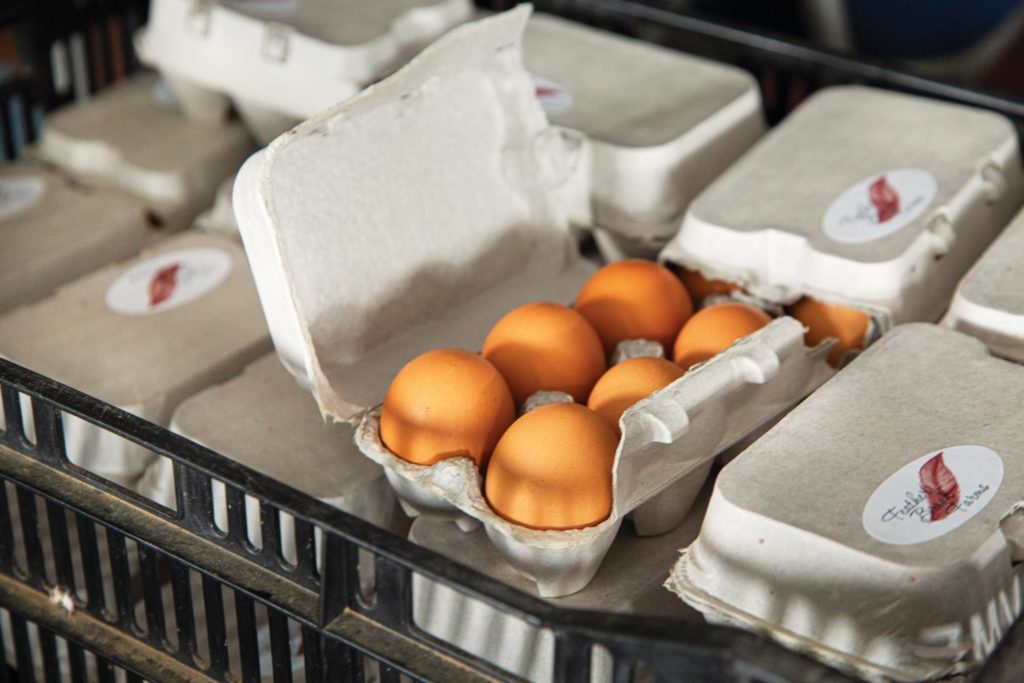
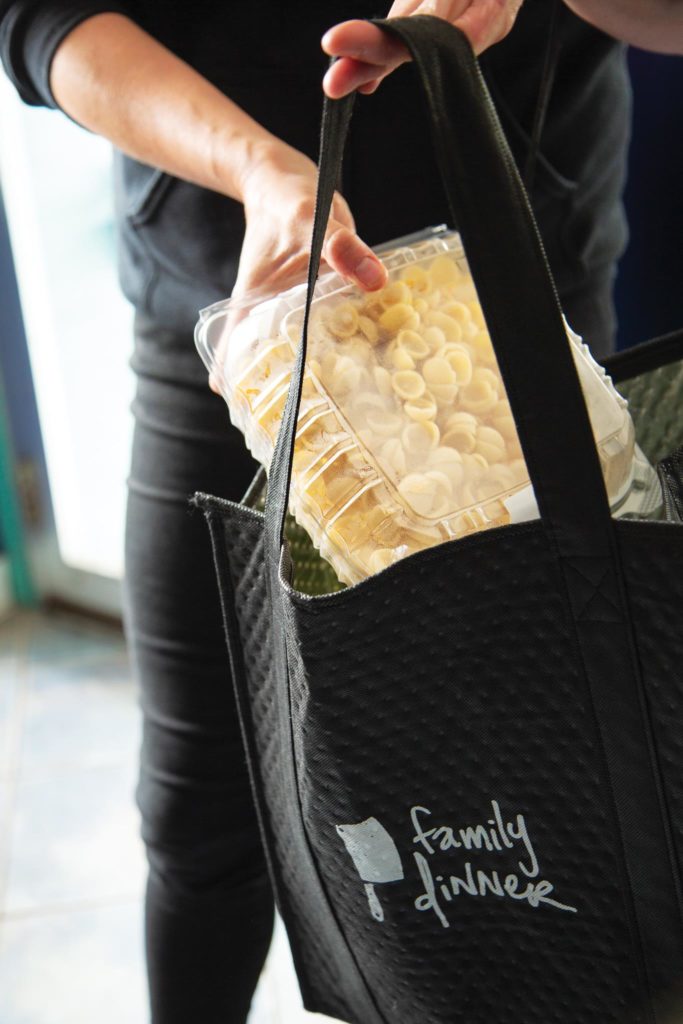
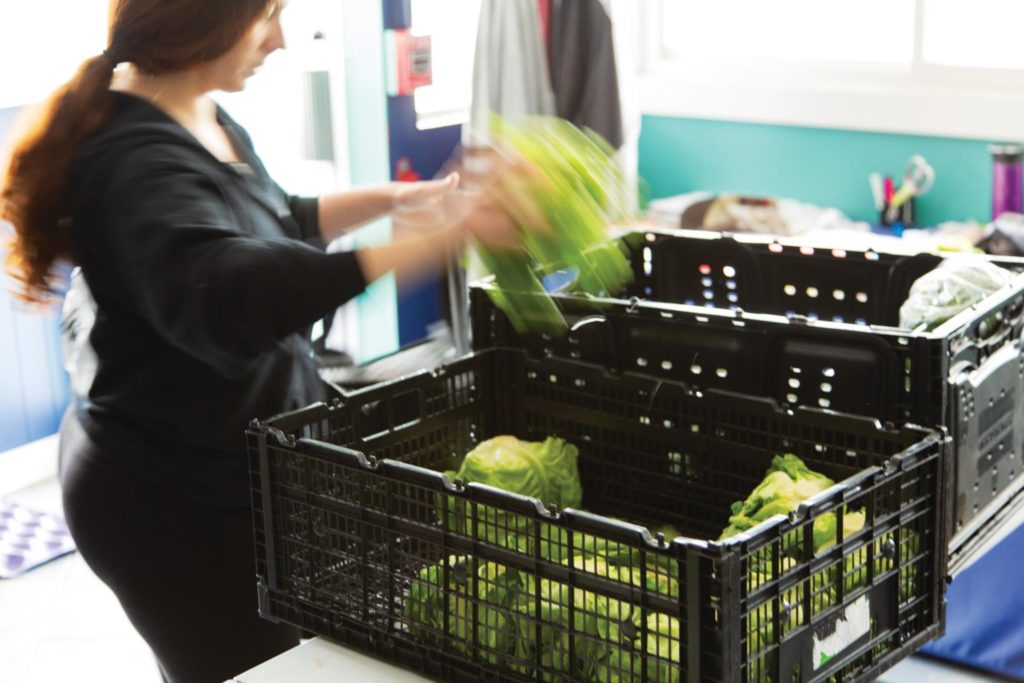
Among the farms Family Dinner works with is Brookford Farm in Canterbury, New Hampshire, which produces a huge array of organic produce, farmstead cheeses, milk, yogurt, cultured butter, meats, eggs, kimchi, pickles, and other products. Owner Luke Mahoney says Family Dinner’s “regular purchases go a long way” in helping them run the farm and pay their employees. He adds that working with Family Dinner offers a better business model than farmer’s markets do, since it eliminates waste. “We go to markets and bring what we think we’re going to sell, and we come back with half of it every week,” he says. By contrast, Family Dinner’s orders are precise. “It’s exact, and that is super helpful,” Mahoney says.
Family Dinner shares are also highly customizable—available in double, whole, and half shares, and in omnivore, pescatarian, vegetarian, paleo, and “build-my-own” varieties—and focused on sustainability. Not only is there minimal packaging (which is reusable), but Family Dinner uses route optimization software to determine the shortest route between customer drop-off points, so delivery drivers expend as little time and fuel as possible. “It’s a food company, but we’re just nerds,” Baumgartner says.
But the most impressive aspect of Family Dinner is its customer enthusiasm. Andrew Keely of Wakefield has been a subscriber for about seven months and loves the wide assortment of foods and the excitement of discovering new producers. “It’s really nice to get this variety of food,” he says. “You get whole meals’ worth of food rather than big boxes of vegetables.”
Plus, for his 4-year-old son, Family Dinner has become shorthand for a great meal. “Saying it’s from Family has kind of turned into a trick for him,” Keely says. “That means, ‘I should try it.’”
Baumgartner eventually wants Family Dinner to expand further into the North Shore, with both its producers and customers. But no matter where this company operates, they’ll keep a tight focus on their values: caring for the environment, supporting small farmers, treating animals ethically, and sharing great food. “It’s an extreme focus on quality and taste,” Baumgartner says. “But all these other things stand behind it.”
For more information, visit sharefamilydinner.com

